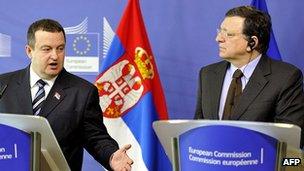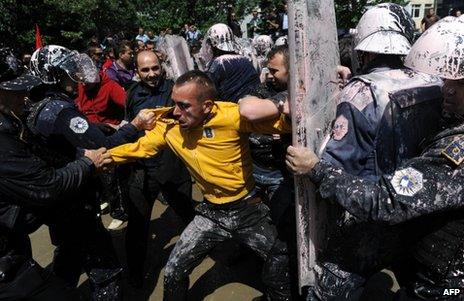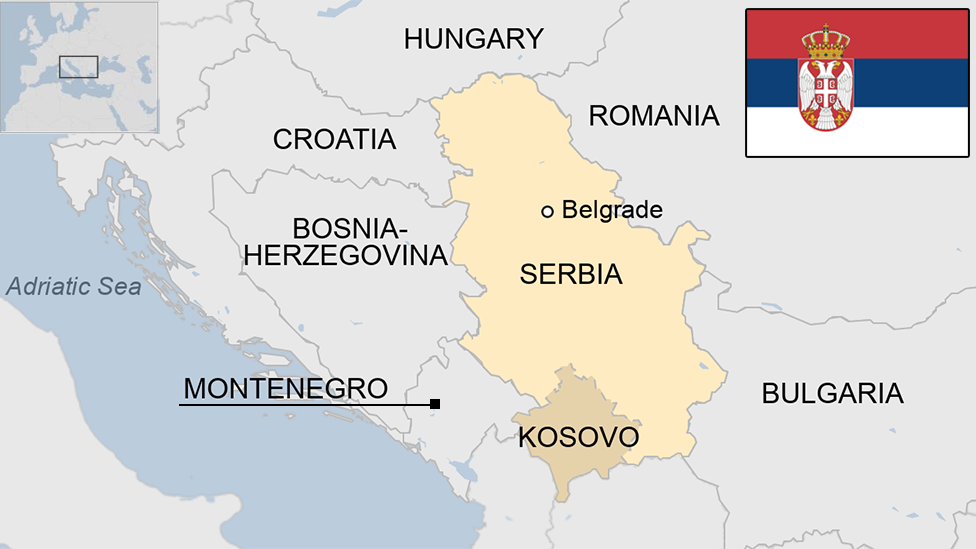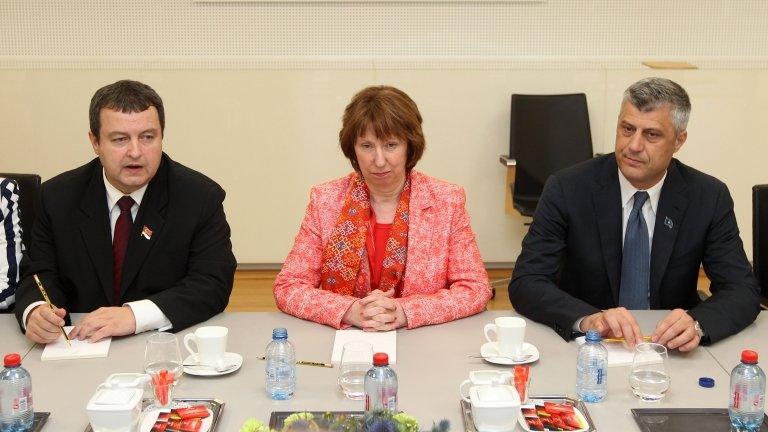EU set for Serbia membership talks
- Published

Serbia wants to put the violence of the 1990s behind it and join the EU
EU leaders have agreed to open accession talks with Serbia, whose EU bid was long delayed by a dispute over its breakaway region of Kosovo.
EU-Serbia negotiations would begin in January 2014 at the latest, European Council President Herman Van Rompuy said at a Brussels EU summit.
Talks on an EU association agreement with Kosovo will also get under way.
Tensions between Kosovo's ethnic Albanian majority and remaining ethnic Serbs resurfaced this week.
Stabilisation and association agreements with the EU cover trade, economic and political relations. They are seen as important landmarks for applicant countries seeking EU membership.
The summit conclusions , externalsay that before January "the negotiating framework will be... confirmed by the European Council" - a sign of the EU leaders' commitment to membership talks with Serbia.
'This is historic'
The European Commission President, Jose Manuel Barroso, called the Serbia decision "indeed historic".
"We very often use the word 'historic' in an abusive manner, but this is historic. Let's not forget what happened not so long ago in that part of Europe, with one of the most violent wars we saw - and now we will start negotiations with Serbia," he told a news conference after the summit.
The EU leaders also welcomed the entry of Croatia into the 27-nation bloc, which will happen on Monday. A big celebration is to take place in the Croatian capital Zagreb on Sunday night.
Croatia fought a bitter war against Serb forces during the break-up of Yugoslavia in the early 1990s. It will become the EU's 28th member, and the second from former Yugoslavia, after Slovenia.
Mr Van Rompuy said EU officials would visit both Serbia and Kosovo on Monday, in a sign of the EU's commitment to their integration with the bloc.
Many countries recognise Kosovo as independent, but Serbia is among those, including Russia and China, that do not.
Five of the 27 EU countries do not recognise Kosovo: Spain, Greece, Romania, Slovakia and Cyprus.
Clashes

Protesters spattered police with paint in Pristina on Thursday
Under the April deal the ethnic Albanian government in Kosovo accepted a high degree of autonomy for Serb-majority areas in the territory's north. Belgrade insisted that the deal did not mean Serbian recognition of Kosovo's independence.
In the capital Pristina, ethnic Albanian nationalists clashed with police outside parliament on Thursday as MPs ratified the deal with Serbia, brokered by the EU in April.
Hundreds of protesters carried banners that read "The deal will not pass" and "A state cannot be built with thieves".
According to Serbian media, Serbs who gathered to commemorate a historic battle outside the city on Friday were attacked with stones after they left the site by bus, and several people injured.
They had been marking the Battle of Kosovo Polje in 1389, when Serbian forces were defeated by an invading army of Ottoman Turks.
- Published28 January

- Published22 April 2013

- Published2 September 2014